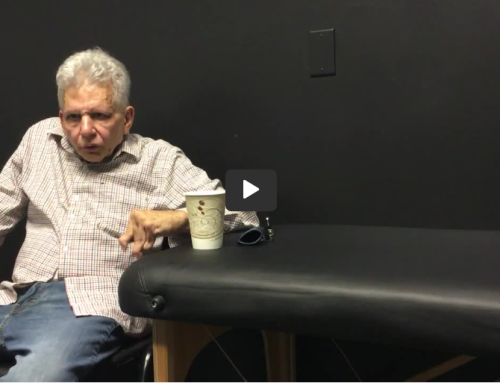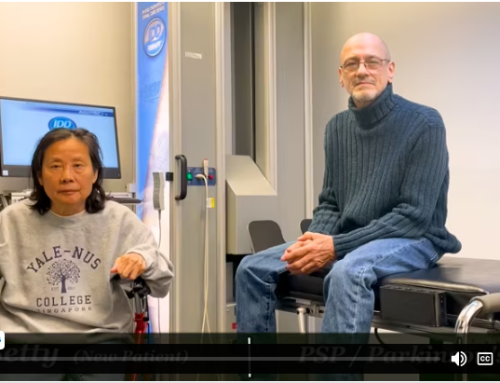The second most common condition involving disorders of the movement and degeneration of the nerves is called Parkinson’s disease. This disease is affecting millions of patients around the world and there are many similar conditions that can be easily mistaken for this particular one. Because of this, it is common for patients to be misdiagnosed with Parkinson’s disease and live in fear due to the progressive characteristics of the disease. Parkinson’s disease is presented with loss of muscle control, slowness and stiffness, as well as impaired balance. These symptoms progress with time and become more severe, resulting in difficulties walking, completing tasks, and talking. This makes it impossible for patients to earn their own income and makes them dependable on others.
The condition has a different degree of progression with each patient. Some patients can live long lives without being impaired to such a degree, whereas others have it progressing quickly and leading to disability only several years after being diagnosed. It is also common for patients to have premature death due to complications such as pneumonia and injuries caused by falling.
Typical for this disease is the fact that the majority of patients who have developed it are 60 years of age or even older. The life expectancy in developed countries is rising significantly which is why the number of people affected by this disease is also increasing with each year. This makes the condition more and more common.
Parkinson’s disease has many symptoms. Some of them can be noticed early and others are present only after years of progression. These are the primary symptoms of the disease:
- These tremors can affect different parts of the body such as hands, arms, fingers, feet, jaw, legs, as well as head. These tremors are common when the patient is resting and not involved in any movement. Factors such as excitement, stress, tiredness, and so on, can also be the reason for the presence of tremors or they can also increase the severity of the tremors. The more it progresses, the worse these tremors become, impairing normal daily tasks.
- This is a specific medical term often used for describing patients with Parkinson’s disease. It simply means that each movement made intentionally by the patient is quite slow even when they want it to be normal or quick. It is possible to reach a point when even the initiating of a movement is difficult and slow, sometimes even impossible. Bradykinesia together with the stiffness is the reason for the so called “mask-like” face of patients because of affecting the facial muscles.
- Stiffness or Rigidity. This affects the trunk and the limbs. Movement can even increase the stiffness. This can cause pain in the muscles. Rigidity is also the reason for having difficulty eating, as well as handwriting, and patients develop the so called micrographia.
- Instability of the posture. This is very common for patients. Maintaining balance when reflexes are lost and control of the muscles is impaired is quite difficult. Postural instability is the reason for many patients falling and having injuries.
- A Distinctive Parkinsonian walk. Patients have a stooped position and do not swing their arms when trying to walk. It is often that they fall forward as well during their walk.
In addition to the primary symptoms, there are secondary ones such as the following:
- Increased stress, anxiety and insecurities.
- Memory loss and dementia.
- Depression caused by the fear of disease progression.
- Difficulty swallowing, as well as increased salivation.
- Erectile dysfunction.
- Loss of smell.
- Skin problems.
- Monotone voice and quieter speech.
- Increased urinary frequency.
Usually, symptoms are present even before the appearance of the disease, but patients are unaware of them and do not seek medical help. This is why Parkinson’s disease is often diagnosed quite late. Most of the times patients have lost up to 80% of their cells that produce dopamine, resulting in difficulty in treatment and faster progression. This is why it is important to be aware of the early signs and seek medical help as soon as possible. We can also help with consulting you whether or not your symptoms can lead to Parkinson’s disease and what root causes may be the reason for your condition.
It is accepted that Parkinson’s disease has several stages. However, most of the researchers disagree on the number of these stages and their characteristics. These are the stages of the disease accepted at the current moment by the medical society:
- First stage. Symptoms are still mild and include mostly tremors. These symptoms do not interfere yet with the daily tasks and usually affect only one side of the body.
- Second stage. Both body sides are affected and symptoms get worse.
- Third stage. Loss of balance is added to the symptoms and movement is becoming slower.
- Forth stage. Symptoms become severe and they require medical help. Patients no longer can live alone and depend on others.
- Fifth stage. Patients are completely unable to look after themselves and caregivers need to help for all activities. Hallucinations, as well as delusions are present.
Parkinson’s disease is a neurodegenerative disease caused by the degeneration and death of certain neurons producing dopamine. Dopamine is very important as a chemical messenger in the brain. The more time it passes, the less dopamine is present in the brain and this is why symptoms worsen over time. Causes may include the following:
- Triggers from the environment. There is proof that certain toxins as well as factors from the environment can increase the chance of Parkinson’s disease in patients who have genetic predisposition.
- Genetic predisposition. There are certain genes associated with the disease.
- Presence of Lewy bodies. These bodies contain a certain protein called alpha-synuclein which is present only in patients with the disease.
- Stress and inflammation. These can also help increase the chance of developing the disease.
Seeking medical help is recommended if you have any of the early signs. We can consult you on your symptoms and help you find the root causes of the condition if you have been diagnosed with it.



